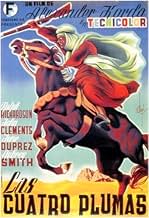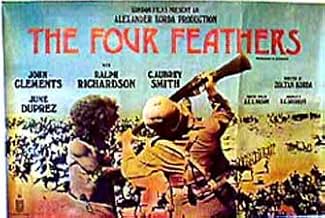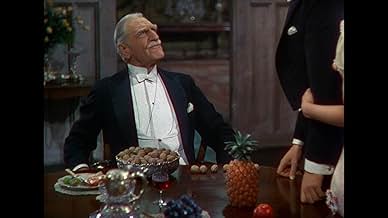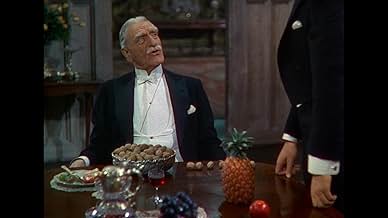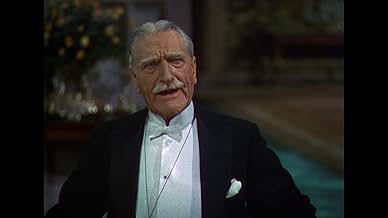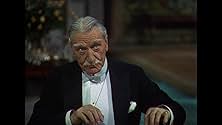A British Army officer resigns, burning his last-day summons to war in the Sudan. Accusing him of cowardice, his girlfriend and three friends give him white feathers. To gain redemption, he ... Read allA British Army officer resigns, burning his last-day summons to war in the Sudan. Accusing him of cowardice, his girlfriend and three friends give him white feathers. To gain redemption, he shadows his friends to save their lives.A British Army officer resigns, burning his last-day summons to war in the Sudan. Accusing him of cowardice, his girlfriend and three friends give him white feathers. To gain redemption, he shadows his friends to save their lives.
- Awards
- 1 win & 2 nominations total
- Man
- (uncredited)
Featured reviews
As in Stanley Baker's "ZULU" these giant black warriors are fearsomely portrayed with the scenes inside the primitive prison where the "dumb" spy Harry Faversham eventually finds himself are quite grim. And as another reviewer has commented, crusty Sir Aubrey as ever is the perfect & amusing retired tactician at the start & finish. A glare from under those bushy eyebrows was always enough! Great entertainment.
June Duprez is the scornful woman, pretty as a picture in the only feminine role. Uncharismatic British actor John Clements is only adequate as the man who receives the "four feathers" and must redeem himself--but Ralph Richardson has the most memorable scenes as the sun-struck soldier who loses his helmet under the blazing sun and is blinded. Many gripping scenes as the hero undertakes a long journey to the Sudan.
Handsome Alexander Korda production rightfully deserves its ranking as a screen classic of 1939, but I have to say it's not without its faults as far as the structure of the story goes.
First of all, too much time is spent on hundreds of extras in battle scenes that become repetitious after awhile and interrupt the flow of the story and what is happening with our hero. Furthermore, the actor chosen for the "stiff upper lip" role of Haversham is John Clements, and much of his performance is too stiff to come alive. A more appealing and charismatic actor from that era would have sufficed and made the story stronger. Thirdly, there's a hint of incredibility in the tale of a man who would go to such extremes to regain his honor and go on a mission in which he would be reunited with the very men who scorned him. A bit much in the realm of credibility, but it does make a good story.
Summing up: Good adventure tale in which C. Aubrey Smith has one of his most memorable character roles as a stuffy "Colonel Blimp" type of career soldier recounting his favorite war tales.
I believe that the main reason this film is not given more credit is that it happened to be made in the watershed year of 1939, a year of legendary films, filmmakers, and stars. (Think "Gone with the Wind" and "The Wizard of Oz", among others.) The action scenes are as good as you can get. The technical direction is well done and the cinematography excellent. While the camaraderie is, at times, a little forced, it is probably fairly accurate.
The travails of the protagonist are straightforward and unimpeded by the burdens of political overtones or ethereal punishments for current retrospections on political transgressions and apologetic political correctness. I'll forego the 5.1 surround sound for the far better entertainment factor of the real "Four Featers" made in 1939
This is a wonderful British adventure film, equally on a par with anything Hollywood was to produce in that golden year of 1939. Shot in color, with spare-no-expense filming in the Sudan, THE FOUR FEATHERS is a paean to the glory days of Victoria's Empire & the men who fought to build it.
Sir John Clements is excellent as the young hero. Although virtually unknown to American audiences his entire career, Sir John was a very fine actor with a warmly distinctive voice which he uses here to advantage. Sir Ralph Richardson appears, terrific as always, as one of the friends; so does John Laurie, very good as the troublesome Khalifa. Sir C. Aubrey Smith, magnificent as a curmudgeonly old general, provides the final hurdle Sir John must jump to regain his reputation.
Did you know
- TriviaDirector Zoltan Korda's own remake of this film, Storm Over the Nile (1955), re-used a lot of the battle sequences from this movie, which did not lend themselves very well to the cropping necessary to achieve the width of the CinemaScope ratio, nor did their comparative fuzziness blend well with the new footage.
- GoofsWhen General Burroughs is talking in the garden with Ethne, his swagger stick reverses ends.
- Quotes
Harry Faversham: In England, the white feather is the mark of a coward.
Dr. Harraz: Ah, I see. Then why worry? Be a coward and be happy.
Harry Faversham: No, Doctor. I have been a coward, and I wasn't happy.
- Crazy creditsOpening credits prologue: In 1885 the rebellious army of cruel dervishes enslaved and killed many thousands of defenceless natives in the Sudan, then laid siege to Khartoum. The scanty garrison's heroic commander, General Gordon appealed for help from England - but no help reached him.
- ConnectionsEdited into Storm Over the Nile (1955)
- SoundtracksAuld Lang Syne
(1788) (uncredited)
Lyrics by Robert Burns, music traditional
Heard during the departure of the Regiment
Details
- Runtime
- 2h 9m(129 min)
- Aspect ratio
- 1.37 : 1


